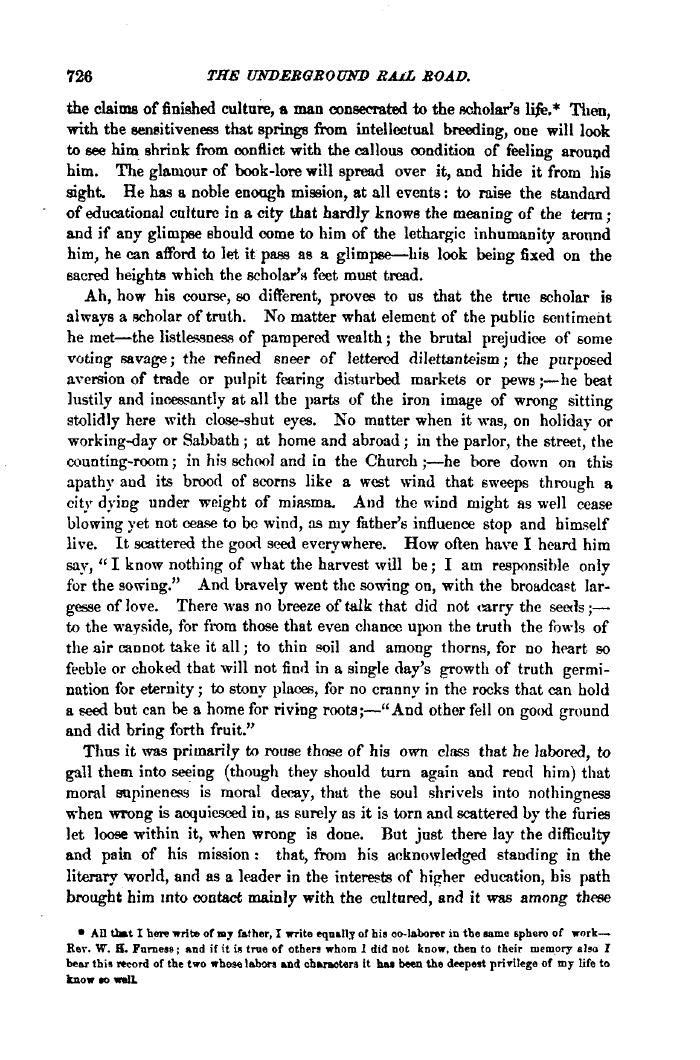 |
||||
 |
||||
| 726 THE UNDERGROUND RAiL ROAD. the claims of finished culture, a man consecrated to the scholar's life.* Then, with the sensitiveness that springs from intellectual breeding, one will look to see him shrink from conflict with the callous condition of feeling aronpd him. The glamour of book-lore will spread over it, and hide it from his sight. He has a noble enough mission, at all events: to raise the standard of educational culture in a city that hardly knows the meaning of the term; and if any glimpse should come to him of the lethargic inhumanity aronnd him, he can afford to let it pass as a glimpse—bis look being fixed on the sacred heights which the scholar's feet must tread. Ah, how his course, so different, proves to us that the tnic scholar is always a scholar of truth. No matter what element of the public sentiment he met—the listlessness of pampered wealth; the brutal prejudice of some voting savage; the refined sneer of lettered dilettanteism; the purposed aversion of trade or pulpit fearing disturbed markets or pews;—he beat lustily and incessantly at all the parts of the iron image of wrong sitting stolidly here with close-shut eyes. No matter when it was, on holiday or working-day or Sabbath ; at home and abroad; in the parlor, the street, the counting-room; in his school and in the Church ;—he bore down on this apathy and its brood of scorns like a west wind that sweeps through a chv dying under weight of miasma. And the wind might as well cease blowing yet not cease to be wind, as my father's influence stop and himself live. It scattered the good seed everywhere. How often have I heard him say, " I know nothing of what the harvest will be; I ain responsible only for the sowing." And bravely went the sowing on, with the broadcast largesse of Jove. There was no breeze of talk that did not carry the seeds ;— O •* 7 to the wayside, for from those that even chance upon the truth the fowls of the air cannot take it all; to thin soil and among thorns, for no heart so feeble or choked that will not find in a single day's growth of truth germination for eternity; to stony places, for no cranny in the rocks that can hold a seed but can be a home for riving roota;—"And other fell on good ground and did bring forth fruit." Tims it was primarily to rouse those of his own class that he labored, to gall them into seeing (though they should turn again and rend him) that moral sapineness is moral decay, that the soul shrivels into nothingness when wrong is acquiesced in, as surely as it is torn and scattered by the furies let loose within it, when wrong is done. But just there lay the difficulty and pain of his mission : that, from his acknowledged standing in the literary •world, and as a leader in the interests of higher education, his path brought him into contact mainly with the cultnred, and it was among these • AD that I here write of 107 father, I writo equal).? of his oo-laborer in the same sphere of work—. Rev. W. H. Farness; and if it i» true of others whom 1 did not know, then to (heir memory also I bear this record of the two whos« labors and cbaraetflra tt hu be«n the deepest privilege of my life to know to wall |